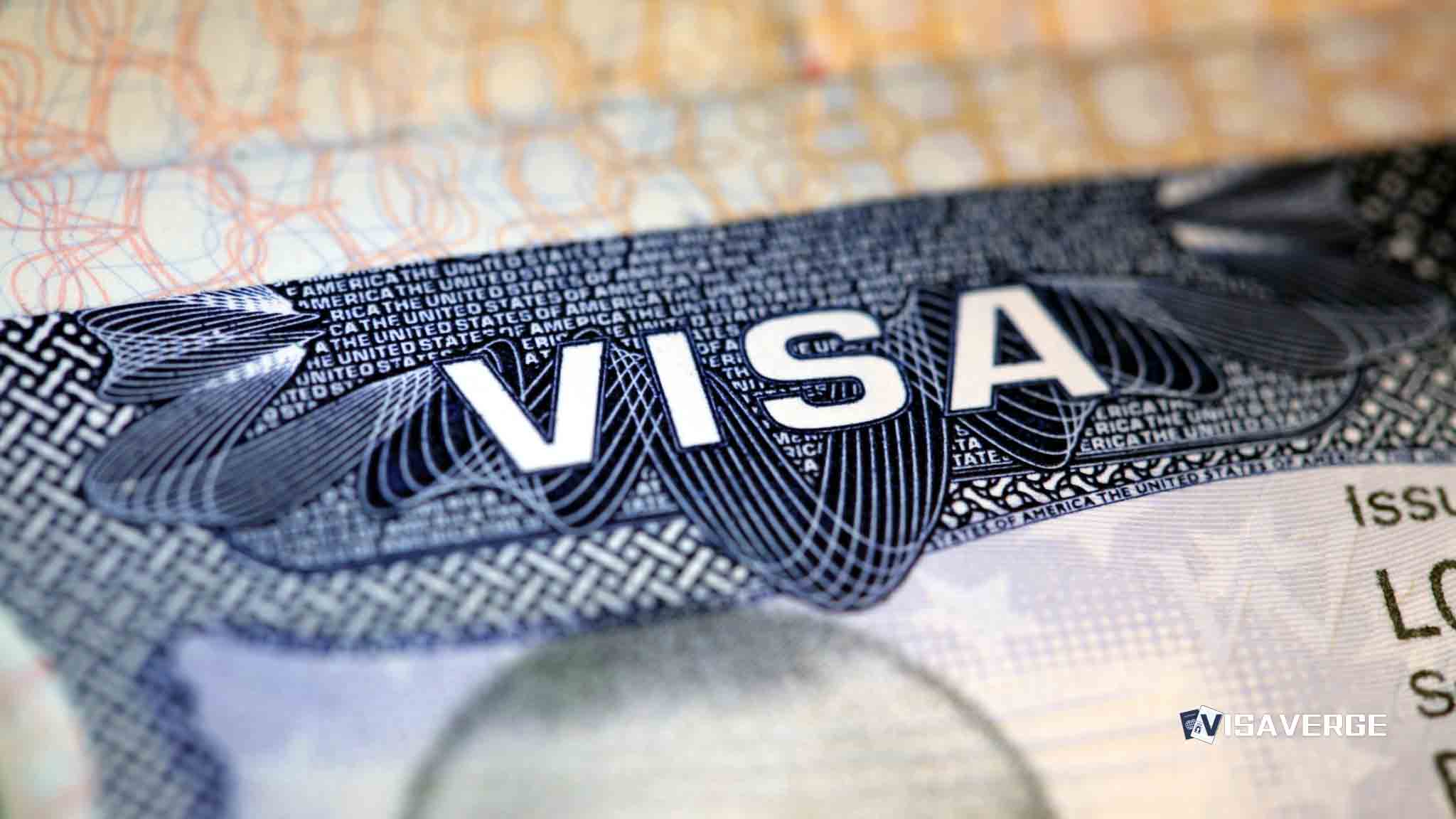Key Takeaways
• On May 28, 2025, Israel began deporting convicted terrorists receiving payments from the Palestinian Authority.
• The 2023 amendment allows citizenship revocation and deportation of Israeli citizens convicted of terrorism.
• Four people face imminent deportation; hundreds more are in early stages of this process.
On May 28, 2025, Israeli Defense Minister Israel Katz announced that Israel will begin deporting citizens convicted of terrorism who receive payments from the Palestinian Authority. This marks a major policy shift, as it is the first time Israel is putting into action a law that allows the government to strip citizenship and deport certain individuals. The law, amended in February 2023, targets those convicted of terrorism, especially if they benefit financially from the Palestinian Authority. Four people are already in advanced stages of deportation, and proceedings have started against hundreds more. This move follows a classified meeting in the Knesset, Israel’s parliament, where top officials reviewed how the law would be carried out.
This article explains what the new policy means, who it affects, how it works, and what the possible consequences are for individuals, families, and the wider community. It also looks at the legal and human rights debates surrounding the policy, and what might happen next.

What Is the New Deportation Policy?
The Policy Change:
In February 2023, Israel amended its 1952 Citizenship Law. The change allows the government to take away citizenship from people convicted of terrorism, helping terrorism, harming Israeli sovereignty, inciting war, or helping an enemy during wartime. The law covers both Israeli citizens and permanent residents. If someone’s citizenship is revoked, they are deported and not allowed to return to Israel.
Who Is Affected:
The law mainly targets Israeli citizens and permanent residents who have been convicted of terrorism and who receive payments from the Palestinian Authority. The Palestinian Authority is the governing body in parts of the West Bank and is known to provide financial support to people convicted of attacks against Israelis. According to analysis from VisaVerge.com, this financial link is a key reason for the new policy.
How the Law Works:
– Identification: Security and defense agencies identify people convicted of terrorism who also receive money from the Palestinian Authority.
– Data Transfer: These agencies give the Interior Ministry the information needed to start the process.
– Legal Review: The Interior Ministry checks each case to make sure it fits the law.
– Revocation and Deportation: If approved, the person’s citizenship is taken away, and they are deported. They cannot come back to Israel.
Current Status:
As of late May 2025, four people are close to being deported, and hundreds more are in the early stages of the process.
Why Is Israel Doing This Now?
Government’s Reasoning:
Defense Minister Israel Katz said, “Terrorists and terror supporters who are citizens or residents of Israel will receive no reward for their actions. Those who choose murder and hatred will be deported and stripped of their citizenship.” Coalition Whip Ofir Katz added, “In the fight against terror, there are no compromises. This is a historic moment.”
The government believes that taking away citizenship and deporting convicted terrorists will discourage others from committing similar acts. Officials also argue that people who attack the country should not enjoy the benefits of citizenship or permanent residency.
Background Context:
Israel has faced many attacks over the years and has tried different ways to stop terrorism. The 1952 Citizenship Law has been changed several times to deal with security threats. The latest amendment, passed in February 2023, was a response to ongoing tensions with the Palestinian Authority, especially over payments made to people convicted of terrorism.
Delay in Implementation:
Although the law was changed in 2023, it was not enforced for two years. Officials say this was due to legal and bureaucratic hurdles. Now, with new orders from Defense Minister Israel Katz, the process is moving forward quickly.
How Does the Deportation Process Work?
The process involves several steps to make sure the law is followed:
- Identification: Security agencies find individuals who have been convicted of terrorism and who receive money from the Palestinian Authority.
- Data Provision: These agencies send the necessary information to the Interior Ministry.
- Legal Review: The Interior Ministry checks each case to make sure it fits the requirements of the law.
- Revocation of Citizenship: If the case meets the criteria, the person’s citizenship is revoked.
- Deportation: The person is deported and cannot return to Israel.
Important Note:
The law allows citizenship to be revoked even if the person has no other citizenship, as long as they have permanent residence status outside Israel. This is meant to avoid making someone stateless, but critics say it could still happen in some cases.
For more information on Israeli citizenship laws, you can visit the Israeli Ministry of Interior’s official website.
Who Are the Key Stakeholders?
Government Officials:
– Israel Katz: Defense Minister, leading the implementation of the policy.
– Ofir Katz: Coalition Whip, supporting the move as a strong stand against terrorism.
– Moshe Arbel: Interior Minister, responsible for reviewing and carrying out the revocation and deportation process.
Affected Individuals:
– Israeli citizens and permanent residents convicted of terrorism, especially those receiving payments from the Palestinian Authority.
Families and Communities:
– Families of those facing deportation may be separated or face hardship.
– Communities may feel the impact if large numbers of people are affected.
Human Rights Organizations:
– Groups that focus on human rights are concerned about the risk of statelessness and possible violations of international law.
Legal Experts:
– Lawyers and legal scholars are watching to see how the law is applied and whether it will face challenges in Israeli or international courts.
What Are the Main Concerns and Criticisms?
Risk of Statelessness:
One of the biggest worries is that some people could become stateless—meaning they have no citizenship in any country. While the law says citizenship can only be revoked if the person has permanent residence outside Israel, critics say this is not always clear or easy to prove.
Human Rights Issues:
International law generally says that countries should not make people stateless. Human rights groups argue that taking away citizenship and deporting people could break these rules, especially if the person has nowhere else to go.
Legal Challenges:
Legal experts say the law is likely to be challenged in Israeli courts and possibly in international forums. They point out that the law is controversial and could be seen as unfair or discriminatory, especially if it is used broadly.
Impact on Families:
Deporting someone can separate them from their family, causing emotional and financial hardship. Children and spouses may be left behind, and families may struggle to stay together.
Discrimination Concerns:
Some people worry that the law could be used in a way that unfairly targets certain groups, especially Arab citizens of Israel, who are more likely to have ties to the Palestinian Authority.
What Do Supporters Say?
Deterrence:
Supporters of the policy believe it will discourage others from committing acts of terrorism. They argue that people who attack the country should not be allowed to keep the benefits of citizenship.
National Security:
Officials say the policy is needed to protect Israel’s security. They argue that people who receive money from the Palestinian Authority for terrorism are acting against the country’s interests.
Clear Message:
By deporting convicted terrorists, the government hopes to send a strong message that such actions will not be tolerated.
What Do Critics Say?
Violation of Rights:
Human rights groups say the policy could break international laws that protect against statelessness and guarantee basic rights.
Unfair Application:
Critics worry that the law could be used too broadly or unfairly, especially against minority groups.
Family Hardship:
Deportation can break up families and cause suffering for innocent relatives.
Legal Uncertainty:
There are questions about how the law will be applied in practice and whether it will stand up to legal challenges.
What Happens Next?
Ongoing Cases:
Hundreds of cases are in the early stages of the deportation process. More are expected as the policy is fully put into action.
Possible Legal Challenges:
The law may be challenged in Israeli courts or in international forums. If courts find that the law leads to statelessness or violates rights, the government may have to change how it is applied.
Policy Adjustments:
Depending on legal rulings or public pressure, the government may change how the policy is carried out.
International Response:
Other countries and international organizations may respond if they believe the policy breaks international law.
Frequently Asked Questions
What if someone has no other citizenship?
The law says citizenship can only be revoked if the person has permanent residence outside Israel. However, critics say this is not always clear, and some people could end up stateless.
Can people appeal the decision?
The law allows for legal review, but the process may be limited. It is not clear how many appeals will succeed.
What happens to families?
Families may be separated if one member is deported. This can cause emotional and financial problems.
Is this policy unique to Israel?
Other countries have laws that allow for the revocation of citizenship in certain cases, but the use of deportation for citizens is rare and often controversial.
Summary Table: Key Details
| Aspect | Details |
|---|---|
| Policy Change | Amendment to 1952 Citizenship Law (Feb 2023) |
| Effective Date | February 2023 (implementation began May 2025) |
| Scope | Israeli citizens and permanent residents convicted of terrorism |
| Current Status | 4 in advanced deportation, hundreds in early stages |
| Key Officials | Defense Minister Israel Katz, Coalition Whip Ofir Katz, Interior Minister Moshe Arbel |
| Legal Basis | 1952 Citizenship Law (amended) |
| Human Rights Concerns | Potential statelessness, violation of international law |
| Future Outlook | Ongoing proceedings, possible legal challenges, policy adjustments |
Practical Guidance for Affected Individuals
- Seek Legal Advice: If you or someone you know is affected, it is important to get legal help right away. Lawyers can explain your rights and help with appeals.
- Check Residency Status: Make sure you understand your citizenship and residency status, especially if you have ties to another country.
- Stay Informed: Follow updates from the Israeli Ministry of Interior and trusted news sources for the latest information.
- Prepare Documentation: Keep records of your legal status, family ties, and any other important documents that may help your case.
Conclusion
The Israeli government’s decision to begin deporting citizens convicted of terrorism who receive payments from the Palestinian Authority is a major change in how the country deals with security threats. The policy, led by Defense Minister Israel Katz, is based on a 2023 amendment to the Citizenship Law and is now being put into action after a two-year delay. Supporters say it is needed to protect national security and deter terrorism. Critics warn it could lead to statelessness, break up families, and violate international law.
As reported by VisaVerge.com, the policy is likely to face legal challenges and may be adjusted as courts and the public respond. For now, hundreds of people are at risk of losing their citizenship and being deported, and the long-term effects will depend on how the law is applied and what happens in court. Anyone who may be affected should seek legal advice and stay informed about their rights and options.
Learn Today
Citizenship Revocation → Official removal of a person’s citizenship based on specific legal grounds such as terrorism convictions.
Palestinian Authority → Governing body in parts of the West Bank known for financially supporting convicted terrorists.
Permanent Resident → An individual legally allowed to live indefinitely in a country without citizenship rights.
Statelessness → Condition where a person is not recognized as a citizen of any country.
Knesset → Israel’s parliament responsible for legislative review and approval of laws.
This Article in a Nutshell
Israel enforces a new law to deport citizens convicted of terrorism receiving Palestinian Authority payments. This policy aims to enhance security and deter terror, sparked by a 2023 amendment to the Citizenship Law and backed by government leaders despite legal challenges and human rights concerns.
— By VisaVerge.com







